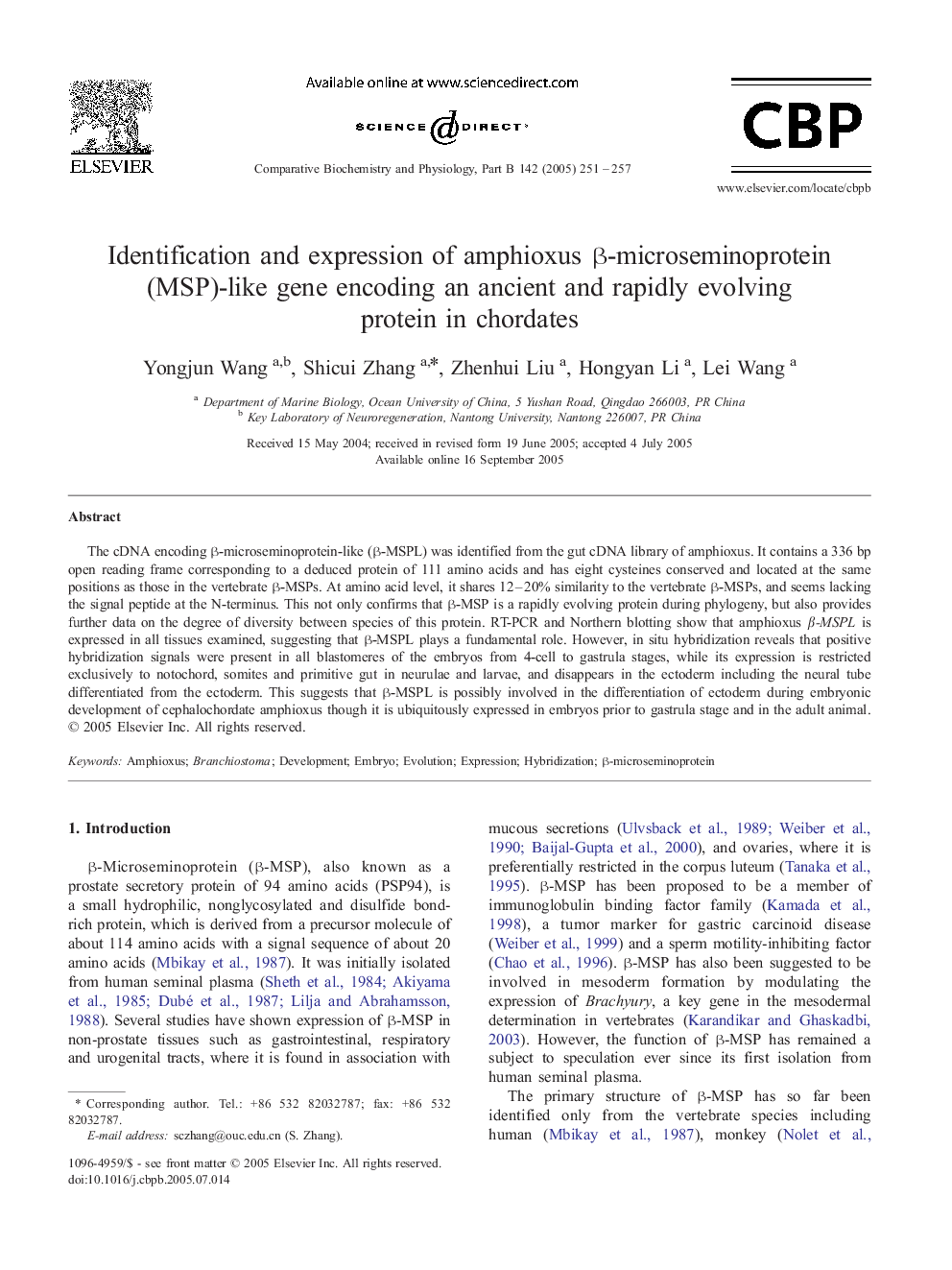| Article ID | Journal | Published Year | Pages | File Type |
|---|---|---|---|---|
| 10820547 | Comparative Biochemistry and Physiology Part B: Biochemistry and Molecular Biology | 2005 | 7 Pages |
Abstract
The cDNA encoding β-microseminoprotein-like (β-MSPL) was identified from the gut cDNA library of amphioxus. It contains a 336 bp open reading frame corresponding to a deduced protein of 111 amino acids and has eight cysteines conserved and located at the same positions as those in the vertebrate β-MSPs. At amino acid level, it shares 12-20% similarity to the vertebrate β-MSPs, and seems lacking the signal peptide at the N-terminus. This not only confirms that β-MSP is a rapidly evolving protein during phylogeny, but also provides further data on the degree of diversity between species of this protein. RT-PCR and Northern blotting show that amphioxus β-MSPL is expressed in all tissues examined, suggesting that β-MSPL plays a fundamental role. However, in situ hybridization reveals that positive hybridization signals were present in all blastomeres of the embryos from 4-cell to gastrula stages, while its expression is restricted exclusively to notochord, somites and primitive gut in neurulae and larvae, and disappears in the ectoderm including the neural tube differentiated from the ectoderm. This suggests that β-MSPL is possibly involved in the differentiation of ectoderm during embryonic development of cephalochordate amphioxus though it is ubiquitously expressed in embryos prior to gastrula stage and in the adult animal.
Keywords
Related Topics
Life Sciences
Biochemistry, Genetics and Molecular Biology
Biochemistry
Authors
Yongjun Wang, Shicui Zhang, Zhenhui Liu, Hongyan Li, Lei Wang,
